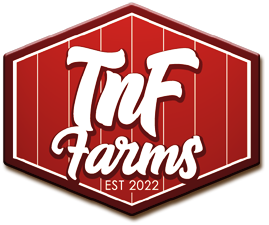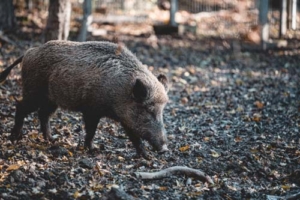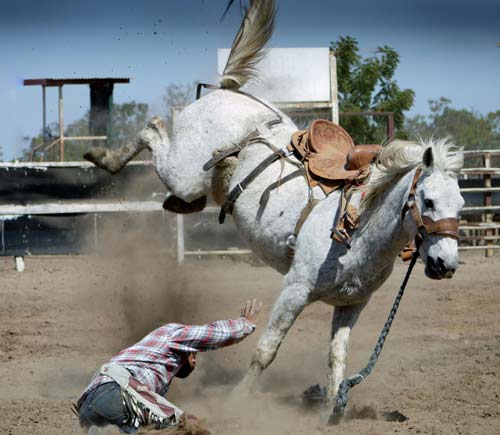Ranching in the Sunshine State: A Glimpse into Florida’s Agricultural Tradition
Ranching in the state of Florida holds a unique and enduring place in the history and culture of the Sunshine State. Florida’s ranches have a rich heritage dating back centuries and continue to play a vital role in the state’s agricultural and economic landscape. Let’s look into Florida ranching, from its historical roots to its modern practices, while also exploring its economic significance, cultural impact, and the challenges it faces.
According to dictionary.com, a ranch is defined as:
noun
- a large tract of land, esp one in North America, together with the necessary personnel, buildings, and equipment, for rearing livestock, esp cattle
- any large farm for the rearing of a particular kind of livestock or crop: a mink ranch
- the buildings, land, etc, connected with it
Faith and I have never considered TnF Farms a “ranch” but we’re more than just a homestead. A large tract of land is subjective. In my mind, a ranch is this gigantic, 1000-acre piece of land. The ranch I imagine would have hundreds of cows, and cowboys tending the herd in the Midwest.
TnF Farms has pigs, goats, and chickens. We also happen to grow fruits, vegetables, and herbs. For this post, I am going to speak as a Florida animal farmer and reach for the title of Florida rancher.
Historical Roots
Florida’s ranching history can be traced back to the Spanish colonial period when Spanish settlers introduced cattle to the region. These cattle, known as “cracker cattle,” became the foundation of Florida’s cattle industry. Over the years, ranching practices evolved, and cattle ranches spread throughout the state. Today, Florida is home to some of the oldest and most renowned cattle ranches in the country.
Florida Cracker Pigs
Florida Cracker pigs, also known as Pineywoods rooter or Florida Scrub pig, are a historic and hardy breed that, like their cattle counterparts, are deeply rooted in Florida’s agricultural heritage. Pineywoods rooter was also a slang for feral pigs. They are renowned for their ability to thrive in Florida’s challenging environments. With their foraging skills and adaptability to the state’s subtropical climate, they have been a valuable part of the region’s agricultural history. Their role was not just limited to providing meat but also helping to clear dense vegetation.
Wild hogs or Pineywoods Rooters are not to be confused with the American Guinea hog. Sometimes people call the American Guinea hog, Florida Cracker Pigs. There is some disagreement as to whether the American Guinea hog shares some lineage from hogs from Africa and the hogs brought over by Spanish colonizers.
Modern Ranching Practices
Modern Florida ranching involves a blend of tradition and innovation. Ranchers employ advanced techniques to manage their herds, maintain pastures, and ensure animal welfare. Sustainable ranching practices have gained prominence as ranchers aim to preserve Florida’s natural resources while meeting the growing demand for high-quality beef. This includes rotational grazing, genetic selection, and cattle health management.
Environmental Stewardship
Florida ranches are not just about raising livestock; they also play a vital role in preserving the state’s unique ecosystems. Many ranches are actively involved in conservation efforts, working to protect wetlands, wildlife habitats, and water resources. These practices highlight the commitment of Florida ranchers to sustainable and responsible land management. By preserving these habitats, ranchers contribute to the conservation of Florida’s biodiversity.
Economic Significance
The economic impact of Florida ranching extends far beyond the boundaries of individual ranches. The industry provides jobs for countless Floridians, from cattle ranchers to veterinarians, equipment manufacturers to meat processors. Meat production contributes significantly to the state’s agriculture sector, helping to sustain rural communities and the broader state economy.
Cultural Heritage
Ranching is deeply woven into Florida’s cultural fabric. Cowboy culture and rodeo events are celebrated traditions. Florida ranches offer a unique opportunity for tourists to experience the state’s rural heritage. Ranches host events, cattle drives, and educational programs that allow visitors to connect with the land and learn about Florida’s ranching traditions. This tourism helps support the state’s economy and raises awareness about the importance of agriculture.
Challenges
Despite its long history and significant economic contributions, Florida ranching faces its share of challenges. Urban sprawl, climate change, and land development put pressure on ranchlands. These challenges require thoughtful planning and collaboration between ranchers, government agencies, and conservation organizations to ensure the sustainability of this vital industry. Finding a balance between land development and ranching is a pressing concern, and addressing environmental challenges is crucial.
Florida’s ranching industry is not just a part of its past
It’s a living and evolving tradition deeply intertwined with the state’s history, culture, and economy. From the rugged Florida Cracker Cattle to modern sustainable practices, Florida ranching continues to thrive and adapt. Its importance extends beyond economic contributions, encompassing cultural heritage, environmental stewardship, and the preservation of a way of life that reflects the spirit of the Sunshine State. By addressing the challenges it faces, Florida ranching can look forward to a sustainable and prosperous future, preserving its unique legacy for generations to come.




